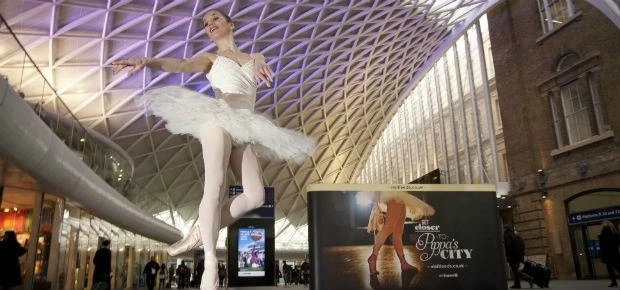
Partner Article
Leeds needs to back culture bid
Leeds has been on an upward trajectory in recent times with the £350m Trinity shopping centre, which put it at the forefront of European retail development in 2013, a major uplift in its economy and property market in 2014, and the rapidly advancing £150m Victoria Gate shopping centre.
With the success of the Tour de France in raising the wider profile of Yorkshire and George Osborne’s focus on creating a “Northern powerhouse”, the city is well placed to grow.
Now it is gearing up for a crack at becoming the European Capital of Culture for 2023, in an attempt to keep the momentum going. Make no mistake, this is not just an idea that is being floated. The city will be making an application and the ground work is being done.
And here lies a significant problem, but also a huge opportunity.
Culturally, Leeds lacks an identity.
This should not be confused with it being a cultural void, it isn’t. However, it doesn’t have a tangible offer that you can put your finger on. It’s a collective of lots of ‘smaller’ cultural pieces that fail to make a coherent whole.
This is not a new opinion and is recognised across the private and public sector. Phrases such as “culturally bland” and “lacking big-ticket items” have all been used before. You might disagree, but when you look at other Northern cities and those that have previously held the Capital of Culture title - such as Liverpool, Glasgow, Manchester or Newcastle - they all have recognisable identities. If you asked a random group of people to describe these cities in a few words, or to list their ‘big-ticket’ items, they probably could, and they’d be the same lists.
Could you say the same about Leeds?
And here is the opportunity. The Capital of Culture bid is not about proving what a city has previously offered or about digging in the vaults to quantify a historical cultural contribution. It is forward looking, asking how, by strengthening cultural and creative sectors, this can have a positive effect socially, economically and culturally, on a candidate city.
It is also outward-looking, making us look at integration, shared aspects of European culture and heritage and, more importantly, future cooperation.
The Capital of Culture bid is an opportunity to put to bed any accusations of being “culturally bland” and to help define the future identity of the city – to give it that tangible something.
And this opportunity is too valuable to miss. It aligns with so many of the city’s aims, to attract people to not only visit, but to do business and live here, to become a European and global city.
Which means that between now and the Government’s selection competition in 2016, before making a final bid in 2017, that residents and businesses support the city’s cultural efforts. Whether that is attending events, volunteering or providing financial or in-kind support, it’s about getting involved to help make the bid a success.
The danger if we don’t grab hold and support this is that we will continue to be a city defined outside of our own borders by the state of our property market, shopping offer and an underperforming football team.
By Tim Downs, director at Aberfield Communications
This was posted in Bdaily's Members' News section by Aberfield Communications .
Enjoy the read? Get Bdaily delivered.
Sign up to receive our popular Yorkshire & The Humber morning email for free.








 Raising the bar to boost North East growth
Raising the bar to boost North East growth
 Navigating the messy middle of business growth
Navigating the messy middle of business growth
 We must make it easier to hire young people
We must make it easier to hire young people
 Why community-based care is key to NHS' future
Why community-based care is key to NHS' future
 Culture, confidence and creativity in the North East
Culture, confidence and creativity in the North East
 Putting in the groundwork to boost skills
Putting in the groundwork to boost skills
 £100,000 milestone drives forward STEM work
£100,000 milestone drives forward STEM work
 Restoring confidence for the economic road ahead
Restoring confidence for the economic road ahead
 Ready to scale? Buy-and-build offers opportunity
Ready to scale? Buy-and-build offers opportunity
 When will our regional economy grow?
When will our regional economy grow?
 Creating a thriving North East construction sector
Creating a thriving North East construction sector
 Why investors are still backing the North East
Why investors are still backing the North East